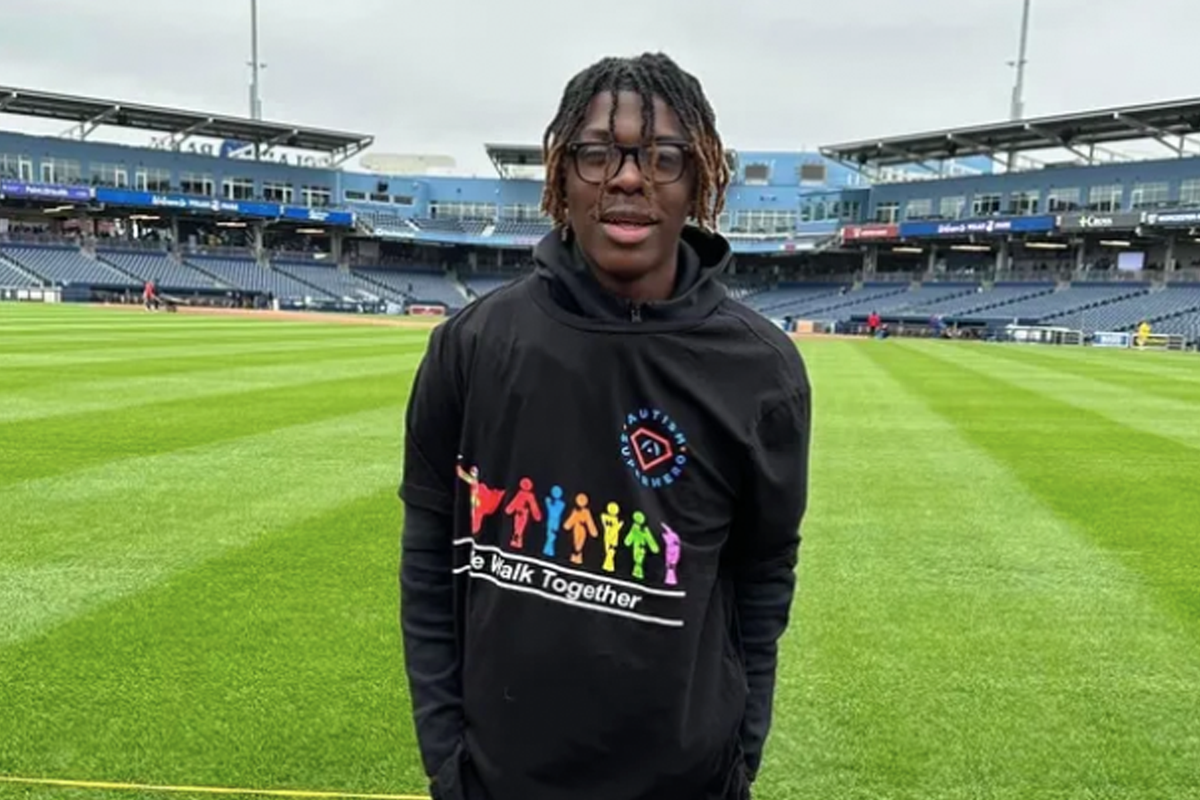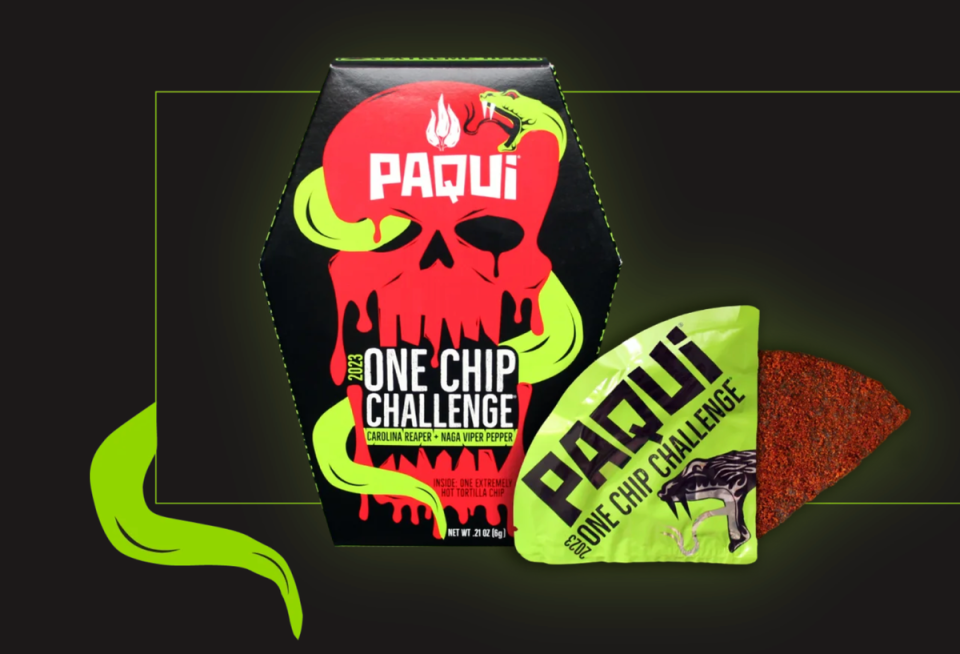Family launches lawsuit after teen dies following viral ‘One Chip Challenge’

The family of a 14-year-old boy who died after participating in the “One Chip Challenge,” a spicy food trend, has filed a lawsuit against the chip brand, its parent company and the store where the teenager purchased the snack.
On Thursday, the tearful parents of Harris Wolobah - the Worcester, Massachusetts, teen who died - sat beside their attorney as they announced they would be pursuing legal action for the wrongful death of their son.
Harris died in September after participating in the “One Chip Challenge” – a food trend that challenges consumers to try and eat a single, extremely spicy chip made by Paqui. The snack food brand is a subsidiary of Hershey Co.
The Chief Medical Examiner for the Commonwealth of Massachusetts concluded Harris, who had a congenital heart defect, died of cardiac arrest after eating food “with a high capsaicin concentration.” Capsaicin is the active component of chili peppers.
The single-packaged chip comes in a coffin-shaped box and says it is made for adult consumption and should be kept out of reach of children. But a lawyer for the Wolobah family said the company negligently released a dangerous food product and marketed itself toward children.

“Isn’t it clear that these defendants knew full well that this chips was unreasonably dangerous? And isn’t this an obvious marketing campaign designed to attract kids to that very danger?” Attorney Douglas Sheff said.
“The promotion was clever but deadly,” Sheff added.
Lois Wolobah, Harris’s mother who is representing her son’s estate in the lawsuit, alleges that Paqui marketed itself toward minors by creating the viral trend on popular social media apps such as TikTok and creating packaging with cartoons that appealed to young people.
Multiple minors across the country were sent to the hospital after consuming the chip in 2022.
She alleges the defendants were fully aware minors were purchasing the chips and participating in the challenge but “continued to manufacture, market and advertise” the chip anyway.
Paqui pulled the “One Chip Challenge” from shelves after Harris’s death.
"They struggle with this horrible situation every hour of every day of their lives," Sheff, said. "They believe that by filing this lawsuit, they’re going to ensure that this doesn’t happen to other kids and other families."

The lawsuit, filed in Suffolk Superior Court, accuses Paqui, Amplify Snack Brands, Hershey Co., Walgreens Massachusettes, of gross negligence, failure to warn, breach of an implied warranty and more.
James Connolly, the manager of the Walgreens and the unnamed cashier who sold the chip are both accused of negligence and gross negligence.
A spokesperson for Paqui said they remain “deeply saddened by the death of Harris Wolobah” and extend condolences to his family and friends but that they “disagree with the allegations” and will defend themselves against the claims.
“Paqui’s One Chip Challenge was intended for adults only, with clear and prominent labeling highlighting that the product was not for children or anyone sensitive to spicy foods or has underlying health conditions. We saw increased reports of teens and other individuals not heeding these warnings. As a result, while the product adhered to food safety standards, out of an abundance of caution, we worked with retailers to voluntarily remove the product from shelves in September 2023 and discontinued the One Chip Challenge,” the spokesperson said.
The Independent has asked Hershey Co. for comment


